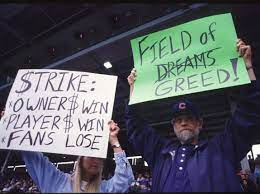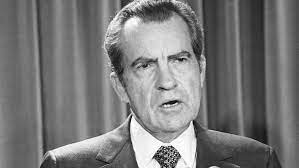April Fools’ tradition popularized
On April 1, 1700, English pranksters begin popularizing the annual tradition of April Fools’ Day by playing practical jokes on each other.
Although the day, also called All Fools’ Day, has been celebrated for several centuries by different cultures, its exact origins remain a mystery.
Some historians speculate that April Fools’ Day dates back to 1582, when France switched from the Julian calendar to the Gregorian calendar, as called for by the Council of Trent in 1563. People who were slow to get the news or failed to recognize that the start of the new year had moved to January 1 and continued to celebrate it during the last week of March through April 1 became the butt of jokes and hoaxes.
These pranks included having paper fish placed on their backs and being referred to as poisson d’avril (April fish), said to symbolize a young, “easily hooked” fish and a gullible person.
April Fools’ Day spread throughout Britain during the 18th century. In Scotland, the tradition became a two-day event, starting with “hunting the gowk,” in which people were sent on phony errands (gowk is a word for cuckoo bird, a symbol for fool) and followed by Tailie Day, which involved pranks played on people’s derrieres, such as pinning fake tails or “kick me” signs on them.
SPORTS
1985
Villanova wins NCAA basketball title in stunning upset
On April 1, 1985, in one of the most shocking upsets in college basketball history, Villanova beats heavily favored, Patrick Ewing-led Georgetown, 66-64, to win the NCAA basketball title. The Wildcats, led by Dwayne McClain’s 17 points, execute a perfect game plan and shoot 79 percent from the field in the win.
SPORTS
1972
First MLB players' strike begins
At 12:01 a.m. on April 1, 1972, the first collective players’ strike in Major League Baseball history begins. The strike lasts 12 days, ending on April 13, and 86 games are cancelled, throwing the season into flux from the start. The cause of baseball’s first strike was the expiration of the league’s three-year pension agreement. The Major League Baseball Players Association, led by seasoned union negotiator Marvin Miller, had made modest requests to increase benefits. However, the owners balked at the proposals, and never took the players’ threat to strike seriously.
COLONIAL AMERICA
1621
The Pilgrim-Wampanoag peace treaty
At the Plymouth settlement in present-day Massachusetts, the leaders of the Plymouth colonists, acting on behalf of King James I, make a defensive alliance with Massasoit, chief of the Wampanoags. The agreement, in which both parties promised to not “doe hurt” to one another, was the first treaty between a Native American tribe and a group of American colonists. According to the treaty, if a Wampanoag broke the peace, he would be sent to Plymouth for punishment; if a colonist broke the law, he would likewise be sent to the Wampanoags.
EUROPEAN HISTORY
1918
RAF founded
On April 1, 1918, the Royal Air Force (RAF) is formed with the amalgamation of the Royal Flying Corps (RFC) and the Royal Naval Air Service (RNAS). The RAF took its place beside the British navy and army as a separate military service with its own ministry.
INVENTIONS & SCIENCE
1993
The “Polish Prince” killed in plane crash
On April 1, 1993, race car driver and owner Alan Kulwicki, who won the 1992 National Association for Stock Car Auto Racing (NASCAR) Winston Cup championship by one of the tightest margins in series history, is killed in a plane crash near Bristol, Tennessee, where he was scheduled to compete in a race the following day. The 38-year-old Kulwicki had been the first owner-driver to collect the championship since Richard Petty did so in 1979, as well as the first NASCAR champ to hold a college degree.
WORLD WAR II
1945
U.S. troops land on Okinawa
On April 1, 1945, after suffering the loss of 116 planes and damage to three aircraft carriers, 50,000 U.S. combat troops, under the command of Lieutenant General Simon B. Buckner Jr., land on the southwest coast of the Japanese island of Okinawa, 350 miles south of Kyushu, the southern main island of Japan. Determined to seize Okinawa as a base of operations for the army ground and air forces for a later assault on mainland Japan, more than 1,300 ships converged on the island, finally putting ashore 50,000 combat troops on April 1. The Americans quickly seized two airfields and advanced inland to cut the island’s waist. They battled nearly 120,000 Japanese army, militia and labor troops under the command of Lieutenant General Mitsuru Ushijima.
U.S. PRESIDENTS
1970
Nixon signs legislation banning cigarette ads on TV and radio
On April 1, 1970, President Richard Nixon signs legislation officially banning cigarette ads on television and radio. Nixon, who was an avid pipe smoker, indulging in as many as eight bowls a day, supported the legislation at the increasing insistence of public health advocates.
ART, LITERATURE, AND FILM HISTORY
1984
Marvin Gaye is shot and killed by his own father
At the peak of his career, Marvin Gaye was the Prince of Motown—the soulful voice behind hits as wide-ranging as “How Sweet It Is (To Be Loved By You)” and “Mercy Mercy Me (The Ecology).” Like his label-mate Stevie Wonder, Gaye both epitomized and outgrew the crowd-pleasing sound that made Motown famous. Over the course of his roughly 25-year recording career, he moved successfully from upbeat pop to “message” music to satin-sheet soul, combining elements of Smokey Robinson, Bob Dylan and Barry White into one complicated and sometimes contradictory package. But as the critic Michael Eric Dyson put it, the man who “chased away the demons of millions…with his heavenly sound and divine art” was chased by demons of his own throughout his life. That life came to a tragic end on April 1, 1984, when Marvin Gaye was shot and killed by his own father one day short of his 45th birthday.
ART, LITERATURE, AND FILM HISTORY
1816
Jane Austen declines royal writing advice
Jane Austen responds to a letter from the Prince Regent (the future King George IV) suggesting she write a historic romance, saying, “I could not sit down to write a serious romance under any other motive than to save my life.” Austen’s correspondence with the Prince Regent, as well as literary figures of the day, was prompted by the success of her novels Sense and Sensibility, (1811) Pride and Prejudice, (1813) Mansfield Park (1814) and Emma (1815). Two additional novels were published after her death. Her identity as the author was known to only a small circle; the general reading public only knew that “a lady” had written the books. Although enjoying the appreciation of such leading contemporary authors as Sir Walter Scott, Austen led a quiet, retiring life in the English country until she died at age 42.
ART, LITERATURE, AND FILM HISTORY
1963
Soap operas "General Hospital" and "The Doctors" premiere
On April 1, 1963, the ABC television network airs the premiere episode of General Hospital, the daytime drama that will become the network’s most enduring soap opera and the longest-running serial program produced in Hollywood. On the same day, rival network NBC debuts its own medical-themed soap opera, The Doctors. By setting their new shows in a hospital, both networks were attempting to capitalize on the popularity of prime-time medical dramas such as Dr. Kildare and Ben Casey. Set in the fictional upstate New York town of Port Charles, General Hospital focused on the lives of the doctors, nurses and patients of the town’s General Hospital, including Dr. Steve Hardy (John Beradino) and Nurse Audrey March (Rachel Ames). The central character of The Doctors was Dr. Matthew Powers (James Pritchett), chief of staff of Hope Memorial Hospital, located in the fictional New England town of Madison.
NATURAL DISASTERS & ENVIRONMENT
1946
Alaskan earthquake triggers massive tsunami
On April 1, 1946, an undersea earthquake off the Alaskan coast triggers a massive tsunami that kills 159 people in Hawaii. In the middle of the night, 13,000 feet beneath the ocean surface, a 7.4-magnitude tremor was recorded in the North Pacific.
CRIME
1924
Hitler sentenced for his role in Beer Hall Putsch
Adolf Hitler is sentenced for his role in the Beer Hall Putsch of November 8, 1923. The attempted coup in Munich by right-wing members of the army and the Nazi Party was foiled by the government, and Hitler was charged with high treason. Despite his conviction, Hitler was out of jail before the end of the year, with his political position stronger than ever.
AMERICAN REVOLUTION
1789
First U.S. House of Representatives elects speaker
On April 1, 1789, the first U.S. House of Representatives, meeting in New York City, reaches quorum and elects Pennsylvania Representative Frederick Augustus Conrad Muhlenberg as its first speaker. Muhlenberg, a Lutheran minister and the former president of the Pennsylvania convention to ratify the U.S. Constitution, was the son of Henry Augustus Muhlenberg and grandson of Johann Conrad Weiser, two of the leading Germans in colonial Pennsylvania. His brother, Major General John Peter Gabriel Muhlenberg, also served in the first House of Representatives.














Comments
Post a Comment